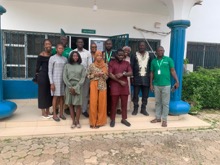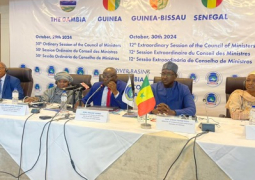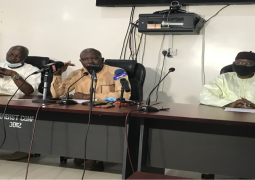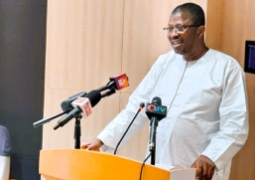
Kabba M.J. Bojang made this disclosure on behalf of the Country Director of Child Fund-The Gambia at a recent meeting, held at the organisation’s conference hall.
The meeting, which brought together doctors, nurses, midwives, members of the Medical and Dental Council, female lawyers, and other stakeholders, was aimed at addressing the critical issues affecting children, which include FGM and other types of gender-based violence.
Bojang re-echoed that the institution is a child-protection organisation working for and with children in protecting and promoting their rights and wellbeing.
The convergence on violence against children and FGM, he went on, highlights the inter-connected nature of the issues affecting children and the need for comprehensive, coordinated approaches to address them.
He equally informed that violence against children and FGM are severe human rights violations that “disproportionately affect girls and young women”, often rooted in gender inequality and cultural practices.
Key among their programme principles is ensuring evidence-based issues, he said, adding that Child Fund-The Gambia and her three local partners, Foni Ding Ding, Saama Kairo and Ding Ding Yiriwa had conducted community-based Child Protection Mapping (CBCPM) in Besse, Sanyang and Busura communities, where issues of child marriage, FGM and frequent road accidents involving children were clearly visible.
Addressing those issues required concerted efforts, he appealed.
In his presentation, Samba Keita, Business Development Specialist at Child Fund-The Gambia, highlighted that gender-based violence continues to be one of the most notable human right violations in societies.
He acknowledged that both women and men experienced the menace, but “the majority of the victims are women and girls”.
“Gender-based violence and violence against women are terms that are often used inter-changeably as it has been widely acknowledged that most gender-based violence is inflicted on women and girls, by men,” he stated.
Keita further dwelled on the various types of abuses and the prevalence of violence against children as well as their psychological and physical impacts.
Fatou Jarra, programme coordinator of GAMTROP, also spoke on related topical issues including facts and figures of FGM, global and local statistics of FGM, and the cultural, social and health implications of the deep-rooted cultural practice.
She emphasises that FGM is a barbaric act that violates the sexual and reproductive health rights of women and girls.
“FGM is deeply-rooted in our culture and culture is not static but dynamic which could be changed, particularly when there is a preponderance of evidence of being inimical to the health and wellbeing of women and girls,” she said. “The practice violates a person’s rights to health and security and physical integrity, the right to be free from torture and cruel inhuman or degrading treatment and the right to life when the procedure results in death.”
To that end, she disclosed that the act, performed on young girls up to the age of 15 years, is a violation of human rights of girls and women.
The meeting also witnessed presentations on the types and prevalence of abuse and violence against children, forms of abuse, global and local statistics of FGM, and guiding principles of child rights. There was also a panel discussion on multi-disciplinary approaches to address violence and FGM and to provide medical and psychological support for survivors of FGM.





